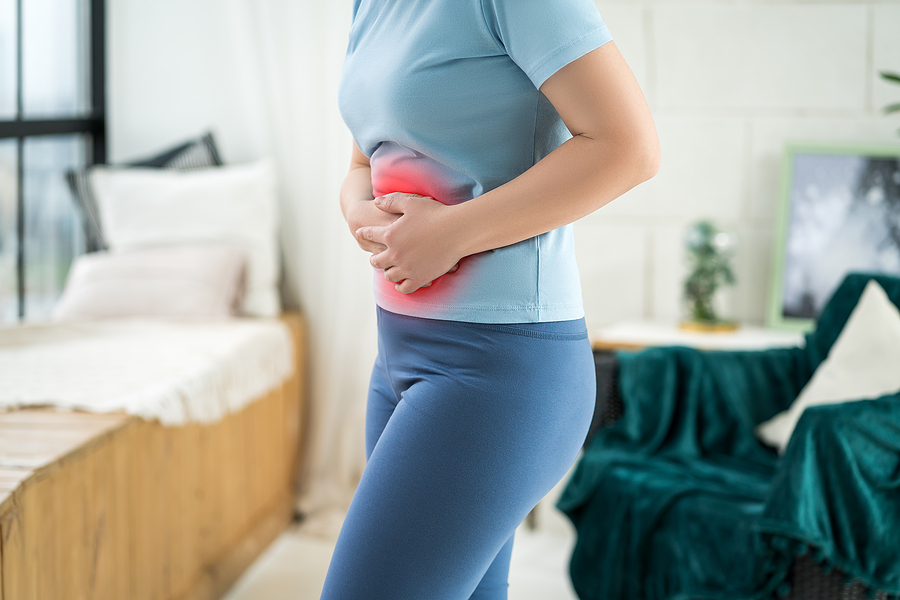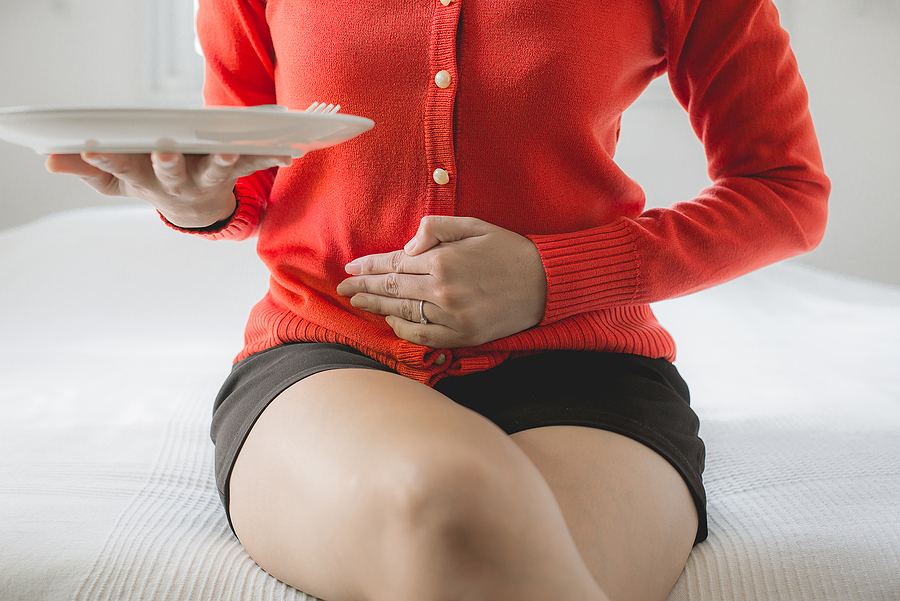I will never forget it. I was 20 years old, having just graduated from college and home for the summer while preparing to take off for a long-awaited trip to Europe. My whole life lay ahead of me—and I wasn’t even able to get motivated to renew my passport. Despite all the wonderful things I had to look forward to, I was miserable. I felt bloated and weighed down, physically and emotionally.
I remember sitting in my mother’s car outside a pottery shop while she went inside. I was thinking about all the things I had to do: get my tickets, shop for new clothes, and call the close friend who would be traveling with me. This should have been an exciting time, so I couldn’t understand why I felt so numb. Only a few days earlier, I had felt thrilled to be going off to explore this new chapter of my life. But now I was filled with despair. What in the world had happened to me?
Looking back on that bewildered 20-year-old, I wish I could tell her what I know now. I wish I could say to her, “I know you feel overwhelmed and confused. But there is a simple explanation. You’re suffering from premenstrual syndrome (PMS) symptoms, and the good news is that help is readily available.”
My hormonal journey
I struggled with hormonal issues throughout my 20’s. Every month I wondered whether this one would be just difficult or a truly grueling ordeal. All too often, I felt like an alien had taken up residence inside me, bringing with it bloating, nausea, ravenous appetite, low energy, and terrible cramping. Usually I enjoyed life but not when this other entity paid its monthly visits.
When I became a nurse practitioner, I discovered that I was far from alone. Many of my patients struggled with difficult PMS, painful periods, or challenging perimenopause, the transition into menopause that typically begins in the early or mid-40’s and continues until menopause finally takes over. My patients were also dealing with endometriosis, fibroids, polycystic ovarian syndrome (PCOS), and premature ovarian failure (POF), and other fertility issues. Many women felt, as I did, that hormonal issues were playing far too big a role in their lives. We all longed for a straightforward solution.
When I would ask women to tell me about their PMS symptoms and how PMS affects their lives, they would say, “I’m just not ME when I’m PMS-ing.” Or they say that they miss work each month from the headaches, cramps, or irritable bowels that come before their periods. But because so many of us suffer from the PMS symptoms, we may not search for answers to feel better because we think it’s normal to “feel hormonal” once a month.
You don’t have to live with chronic symptoms of PMS! After years of experience at my clinic, I can assure you that there is no reason for you to suffer every month. There are a variety of ways that you can help to reduce the hormonal fluctuations that cause your PMS symptoms.
What you can do to reduce – or even eliminate – PMS
It’s natural for your hormones to shift and fluctuate throughout the month, but when you experience uncomfortable symptoms, it’s time to listen to the message your body is sending – symptoms are your body’s way of letting you know that your hormones are not in balance. There are simple changes you can make to help regain that balance!
Eating well – lowering your carbohydrate intake and eating protein at every meal and snack will help keep your insulin levels stable, getting enough sleep, paying attention to your stress levels and moving your body every day are great ways to start.
For more than 30 years I have witnessed the women I’ve seen at the clinic make adjustments to their daily living, transforming them and the way they feel in the weeks before their menstrual cycles.
Herbal remedies support hormonal balance and prevent symptoms
Herbal remedies can offer targeted support for your body, so it can meet the demands being placed on it that lead to hormonal imbalance and PMS. This is especially true with blended herbal therapies that are “adaptogenic”—meaning that they allow your body to use only what it needs to create your own hormonal balance.
Do you have a PMS diet?
The typical North American daily diet is filled with processed food, sugar, and designer coffee that are all difficult to resist—until something goes wrong. One of the first signs that what you are eating is not meeting what you need is when you have PMS symptoms that grow worse.
It’s important to remember that if what you eat is high in simple carbohydrates and sugars, this diet can lead to insulin resistance and weight gain, so your first focus needs to be on decreasing your carbs. Because fat cells produce estrogen, the more fat you have, the higher your estrogen levels may become. This disrupts your natural hormonal balance and makes your PMS symptoms worse. A better way is to eat a balanced diet that is rich in whole foods, non-starchy vegetables, and healthy proteins and fats, which may prevent insulin resistance and weight gain.
I also want to suggest that you consider taking a high-quality multivitamin, omega-3 fish oil, B complex vitamins, calcium, magnesium, and vitamin D – these can all make a great difference in the way that you feel. And a final suggestion: be sure to eat regular meals and snacks throughout the day to support balanced blood sugar, which stabilizes your mood.
Exercise for PMS relief
Regular aerobic exercise will ease your premenstrual symptoms by increasing natural painkilling, euphoria-producing chemicals in your body. These chemicals, called endorphins and their levels tend to drop in the second half of your menstrual cycle.
In addition, exercise boosts your detoxification capabilities by increasing the cleansing action of your lymph system and helping to rid your body of toxins and excess hormones through sweat. An added benefit it that it increases your metabolic rate, and this encourages the body to burn fat for energy, thereby helping you to maintain a healthier hormonal balance.








